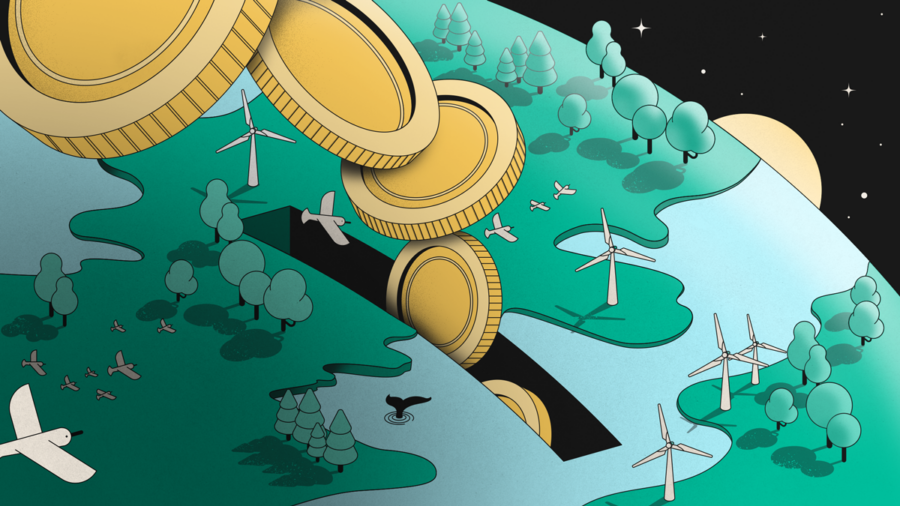
When the prime minister announced last month that he wanted the UK to take a “better, more proportionate” approach to reaching its net-zero targets – targets that he then proceeded to push back five years – he ceded ground disastrously in three important areas.
First, Rishi Sunak has just given up the nation’s position as a global front-runner in the race to net zero. This aspect of his announcement has attracted the most attention, with independent statutory body the Climate Change Committee stating that the government risks taking the country “further away from being able to meet its legal commitments”. Not that such warnings will necessarily faze this administration, of course.
Second, Sunak has also given way to the more rabid among his MPs, including those who’ve been arguing for some time that the British people are not “cash cows” to be “sacrificed at the altar of a twisted and dogmatic green outlook”. Just look at what happened on the previous occasion a prime minister made a similar error of judgement by playing to the backbenches. (If you’re not sure precisely which debacle I’m referring to, I’ll consider my point made.)
Ignoring this £60bn business opportunity would be myopic in the extreme
In so doing, Sunak has pawned away something else too. Despite his arguments that pushing back certain net-zero deadlines to 2035 makes good financial sense, saving companies and consumers money, he has further tarnished his party’s traditional reputation for being on the side of business and capital. As Lisa Brankin, chair of Ford UK – which is investing £430m in electric vehicle manufacturing in this country – put it recently: “Our business needs three things from the UK government: ambition, commitment and consistency. A relaxation of 2030 would undermine all three.”
This is arguably the most pressing and material aspect of the prime minister’s change of policy. Fundamentally, he is sending mixed messages to businesses and investors, potentially restricting the flow of green investment and allowing attention to drift at a time when the economy and the planet can ill-afford this. It is further evidence of an all-too-familiar brand of laissez-faire leadership.
Why Sunak’s net-zero decision is ‘baffling’
In purely financial terms, too, the move is “baffling”, as one leader in the renewable energy sector put it to Raconteur last month. As any salesperson will tell you, urgency is a key motivator and mover of capital, so declaring that your deadlines are a moveable feast is likely to be counterproductive.
And it’s not only a question of the investment pipeline. By this time, many companies will either have put their net-zero spending plans in place or started executing them. Examples include investing in more energy-efficient machinery, replacing a petrol-powered fleet with electric vehicles or even retrofitting commercial premises with more effective insulation. Firms that have made such investments will hardly appreciate being told that their efforts sit somewhere on a spectrum ranging from “disproportionate” to “twisted and dogmatic”.
Should CFOs change tack on net zero?
So what are these businesses to do? Should they persist with their existing plans or could they potentially scale them back in line with the government’s new net-zero timetable to save a bit of cash during these difficult times?
In short, the answer needs to be the former. Funding net zero still matters and ultimately it is still best for CFOs to see achieving this goal as an important investment in their firms’ development. There is, after all, a significant competitive advantage in being ahead of the pack when it comes to embracing cleaner technologies and practices. This is a £60bn business opportunity over the next 25 years, according to the Confederation of British Industry. Ignoring that would be myopic in the extreme.
So, no matter what the government says, CFOs mustn’t go chasing after fantasy cost-savings by ditching or downgrading their net-zero investments. That way madness lies – in the shape of an economic and environmental catastrophe.

When the prime minister announced last month that he wanted the UK to take a “better, more proportionate” approach to reaching its net-zero targets – targets that he then proceeded to push back five years – he ceded ground disastrously in three important areas.
First, Rishi Sunak has just given up the nation’s position as a global front-runner in the race to net zero. This aspect of his announcement has attracted the most attention, with independent statutory body the Climate Change Committee stating that the government risks taking the country “further away from being able to meet its legal commitments”. Not that such warnings will necessarily faze this administration, of course.
Second, Sunak has also given way to the more rabid among his MPs, including those who’ve been arguing for some time that the British people are not “cash cows” to be “sacrificed at the altar of a twisted and dogmatic green outlook”. Just look at what happened on the previous occasion a prime minister made a similar error of judgement by playing to the backbenches. (If you’re not sure precisely which debacle I’m referring to, I’ll consider my point made.)
